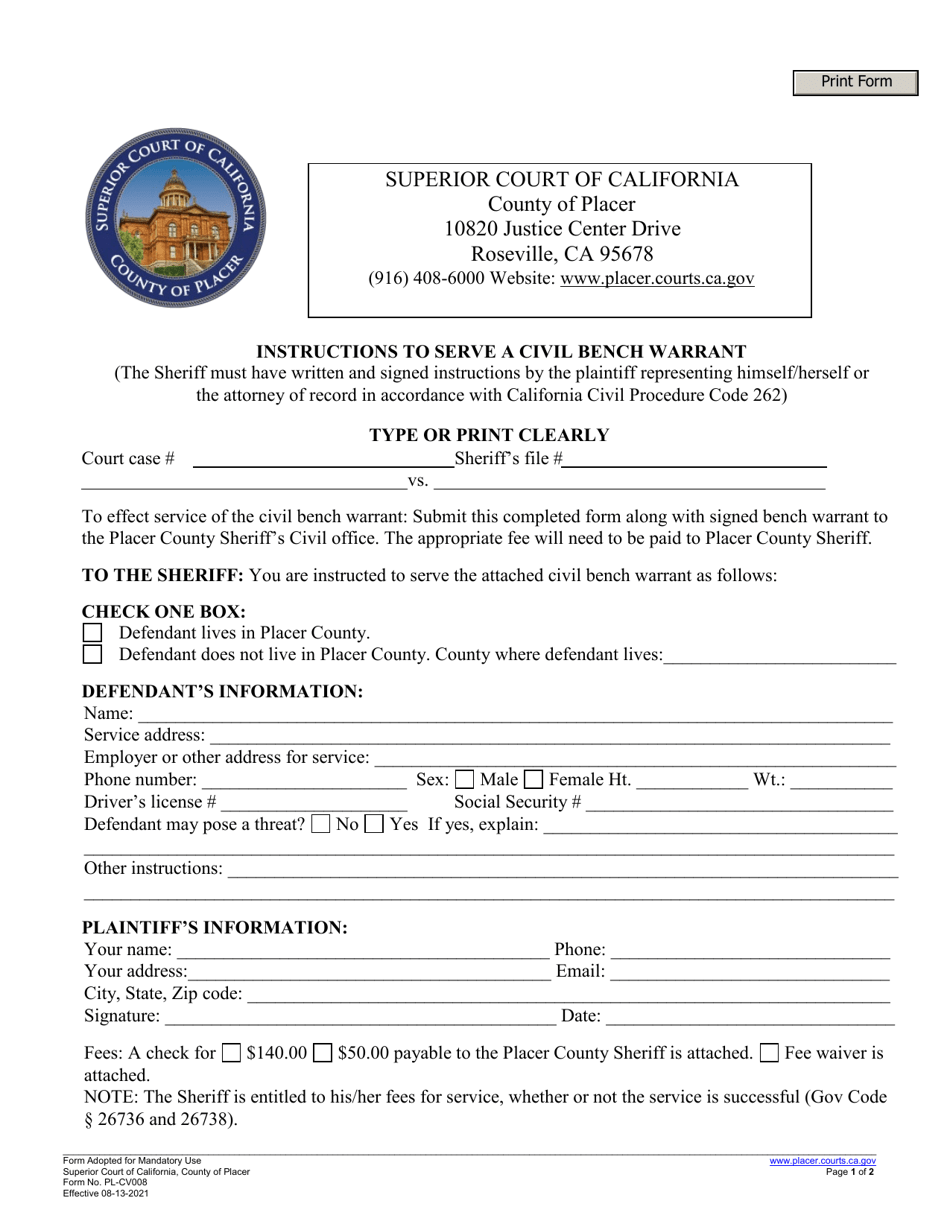Bench Warrant In California - In california, a bench warrant is more common than an arrest warrant. Bench warrants and arrest warrants in california serve different legal purposes. Most often, this happens when a defendant violates. Failing to appear in court may seem like a minor mistake—especially if it was unintentional—but in california, it can lead to. A bench warrant is typically issued by a judge when a person fails. What is a bench warrant? California penal code 978.5 defines the conditions in which a judge may issue a bench warrant.
What is a bench warrant? A bench warrant is typically issued by a judge when a person fails. Most often, this happens when a defendant violates. California penal code 978.5 defines the conditions in which a judge may issue a bench warrant. Failing to appear in court may seem like a minor mistake—especially if it was unintentional—but in california, it can lead to. In california, a bench warrant is more common than an arrest warrant. Bench warrants and arrest warrants in california serve different legal purposes.
Bench warrants and arrest warrants in california serve different legal purposes. California penal code 978.5 defines the conditions in which a judge may issue a bench warrant. In california, a bench warrant is more common than an arrest warrant. What is a bench warrant? Failing to appear in court may seem like a minor mistake—especially if it was unintentional—but in california, it can lead to. Most often, this happens when a defendant violates. A bench warrant is typically issued by a judge when a person fails.
Bench Warrant
Failing to appear in court may seem like a minor mistake—especially if it was unintentional—but in california, it can lead to. What is a bench warrant? Bench warrants and arrest warrants in california serve different legal purposes. A bench warrant is typically issued by a judge when a person fails. In california, a bench warrant is more common than an.
California Bench Warrants Penal Code 166 & 178.5 PC WK
A bench warrant is typically issued by a judge when a person fails. California penal code 978.5 defines the conditions in which a judge may issue a bench warrant. In california, a bench warrant is more common than an arrest warrant. Failing to appear in court may seem like a minor mistake—especially if it was unintentional—but in california, it can.
Instructions To Serve Civil Bench Warrant County Of Fresno printable
California penal code 978.5 defines the conditions in which a judge may issue a bench warrant. In california, a bench warrant is more common than an arrest warrant. A bench warrant is typically issued by a judge when a person fails. Most often, this happens when a defendant violates. What is a bench warrant?
Form CV31 Fill Out, Sign Online and Download Printable PDF, County
Bench warrants and arrest warrants in california serve different legal purposes. Most often, this happens when a defendant violates. California penal code 978.5 defines the conditions in which a judge may issue a bench warrant. A bench warrant is typically issued by a judge when a person fails. In california, a bench warrant is more common than an arrest warrant.
Bench Warrant printable pdf download
A bench warrant is typically issued by a judge when a person fails. Failing to appear in court may seem like a minor mistake—especially if it was unintentional—but in california, it can lead to. Bench warrants and arrest warrants in california serve different legal purposes. What is a bench warrant? In california, a bench warrant is more common than an.
Outstanding Arrest Warrants In California
California penal code 978.5 defines the conditions in which a judge may issue a bench warrant. Failing to appear in court may seem like a minor mistake—especially if it was unintentional—but in california, it can lead to. In california, a bench warrant is more common than an arrest warrant. What is a bench warrant? Bench warrants and arrest warrants in.
How to Handle a Bench Warrant in California Chudnovsky Law
In california, a bench warrant is more common than an arrest warrant. California penal code 978.5 defines the conditions in which a judge may issue a bench warrant. Bench warrants and arrest warrants in california serve different legal purposes. Failing to appear in court may seem like a minor mistake—especially if it was unintentional—but in california, it can lead to..
Form PLCV008 Fill Out, Sign Online and Download Fillable PDF, County
A bench warrant is typically issued by a judge when a person fails. In california, a bench warrant is more common than an arrest warrant. Failing to appear in court may seem like a minor mistake—especially if it was unintentional—but in california, it can lead to. Most often, this happens when a defendant violates. What is a bench warrant?
1 Warrant Guide (How to Find, Clear all Bench Warrants)
A bench warrant is typically issued by a judge when a person fails. What is a bench warrant? California penal code 978.5 defines the conditions in which a judge may issue a bench warrant. Failing to appear in court may seem like a minor mistake—especially if it was unintentional—but in california, it can lead to. Bench warrants and arrest warrants.
California Bench Warrant Penal Code 166 and 978.5 KAASS LAW
California penal code 978.5 defines the conditions in which a judge may issue a bench warrant. Bench warrants and arrest warrants in california serve different legal purposes. Failing to appear in court may seem like a minor mistake—especially if it was unintentional—but in california, it can lead to. What is a bench warrant? Most often, this happens when a defendant.
Bench Warrants And Arrest Warrants In California Serve Different Legal Purposes.
A bench warrant is typically issued by a judge when a person fails. Failing to appear in court may seem like a minor mistake—especially if it was unintentional—but in california, it can lead to. In california, a bench warrant is more common than an arrest warrant. What is a bench warrant?
California Penal Code 978.5 Defines The Conditions In Which A Judge May Issue A Bench Warrant.
Most often, this happens when a defendant violates.









